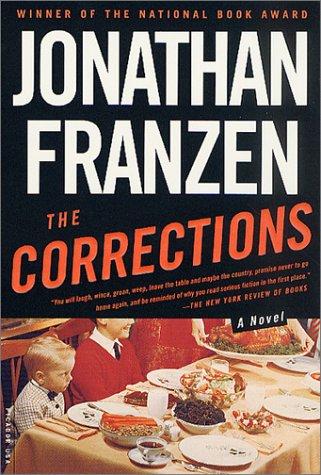 After Christmas Denise moved to Brooklyn and went to work in a new restaurant, and in April she sent Enid a plane ticket for her birthday. Enid thanked her and said she couldn’t possibly leave Alfred, it would not be right. Then she went and enjoyed four wonderful days in New York City. Denise looked so much happier than she had at Chrismas that Enid chose not to care that she still didn’t have a man in her life or any discernible desire to get one.
After Christmas Denise moved to Brooklyn and went to work in a new restaurant, and in April she sent Enid a plane ticket for her birthday. Enid thanked her and said she couldn’t possibly leave Alfred, it would not be right. Then she went and enjoyed four wonderful days in New York City. Denise looked so much happier than she had at Chrismas that Enid chose not to care that she still didn’t have a man in her life or any discernible desire to get one.
Back in St. Jude, Enid was playing bridget at Mary Beth Schumpert’s one afternoon when Bea Meisner began to vent her Christian disapproval of a famour “gay” actress.
“She’s a terrible role model for young people,” Bea said. “I think if you make an evil choice in your life, the least you can do is not brag about it. Especially when they have all these new programs that can help people like that.”
Enid who was Bea’s partner for that rubber and was already annoyed by Bea’s failure to respond to an opening two-bid, mildly commented that she didn’t think “gays” could help being “gay.”
“Oh, no, it’s definitely a choice,” Bea said. “It’s a weakness and it starts in adolescence. There’s no question about that. All the experts agree.”
“I loved that thriller her girlfriend made with Harrison Ford,” Mary Beth Schumpert said. “What was it called?”
“I don’t believe it’s a choice,” Enid insisted quietly. “Chip said an interesting thing to me once. He said that with so many people hating ‘gays’ and disapproving of them, why would anybody choose to be ‘gay’ if they could help it? I thought that was really an interesting perspective.”
“Well, no, it’s because they want special rights,” Bea said. “It’s because they want to have ‘gay pride.’ That’s why so many people don’t like them, even apart from the immorality of what they’re doing. They can’t just make an evil choice. They have to brag about it, too.”
“I can’t remember the last time I saw a really good movie,” said Mary Beth.
Enid was no champion of “alternative” lifestyles, and the things she disliked about Bea Meisner she’d disliked for forty years. She couldn’t have said why this particular bridge-table conversation made her decide that she no longer needed to be friends with Bea Meisner. Nor could she have said why Gary’s materialism and Chip’s failures and Denise’s childlessness, which had cost her countless late-night hours of fretting and punitive judgement over the years, distressed her so much less once Alfred was out of the house.







